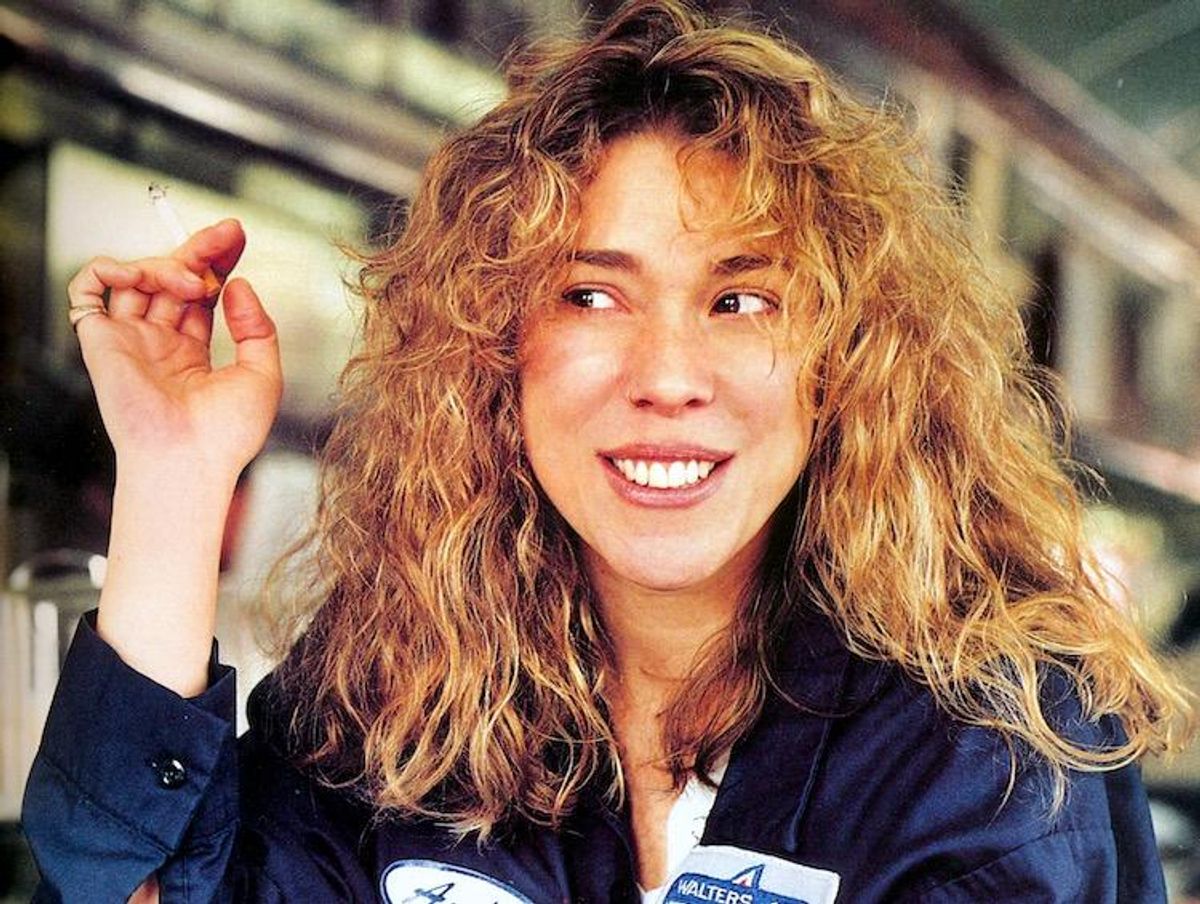This article originally appeared in the June 1995 issue of OUT.
She is not much taller than a parking meter, but when Maria Maggenti speaks, her voice runs over everything in its path, crashing through the East Village coffeehouse we're sitting in. "I didn't choose the story, it chose me because I lived it, and the whole story is an emotional attachment I have to two girls and the experience of falling in love for the first time, falling in love with another girl..." she says.
As if on cue, a young woman approaches the table: "Excuse me, is one of your films in the festival this week? I couldn't help but overhear you." Although distributor Fine Line isn't opening Maggenti The Incredibly True Adventure of Two Girls in Love until June 15, after it headlines San Francisco's and New York's gay and lesbian film festivals, word is already out. Her feature debut is an awkwardly charming teen love story that unfolds when Evie (Nicole Parker), an African-American homecoming queen, drives her Pathfinder into the gas station were Randy (Laurel Holloman), a white tomboy from her high school, works.
"I didn't want to do a film with all white people in it," says the writer-directors, plainly. "I was pretty explicit in wanting to subvert usual celluloid depictions of young black women, making Evie the upper-middle-class character and Randy the working-class character. There's this whole thing that goes on in the film where Evie gives Randy a Walt Whitman book. Part of how class is determined is what you feel you have access to through education. Literature, music, and art. Working-class people aren't encouraged to think that's a possibility for them."
But Maggenti says she felt closest to Evie's entitled character. Maggenti grew up in Washington, D.C., and Lagos, Nigeria, where her mother worked as a World Bank economist, and first fell in love with another girl in high school. "By the time I got to Smith College, I was like, "Honey, I'm out,'" she says, flourishing the statement with a soft finger snap. After college Maggenti immersed herself in act up and agitprop filmmaking, then went through New York University's graduate film factory and turned to making short narrative films.
"I lost a lot of friends to AIDS," she says. "I figured in drama I could translate emotion experience. Drama is concerned with truth, not always facts, and that's what I wanted to explore: truth."
While Two Girls in Love is more lite than labyrinthine, Maggenti ends the film with a dolly shot that suggests the ambiguous nature of truth and love. "Some of that comes as a 30-year-old looking back on the experience of being 17 and saying 'I love you' for the first time and believing it's the last time you'll ever say it."
While Maggenti says she has no problems being called a "lesbian director," she's just as open about the fact that she's currently in a relationship with a man. "It's a contradiction for other people, but not for me," she says. "It's my life; I live it." She's also up front about how she made a $35,000 loan from "an anonymous admirer" into an incredibly likable feature of two girls in love. "One thing that's very important to me is sharing information about how anyone can make a movie, especially some young dyke out there who watches it and says, 'It was OK, but I think I could do better.' That's the girl I want to talk to. "




















































































Did 'The White Lotus' waste Lisa's acting debut?